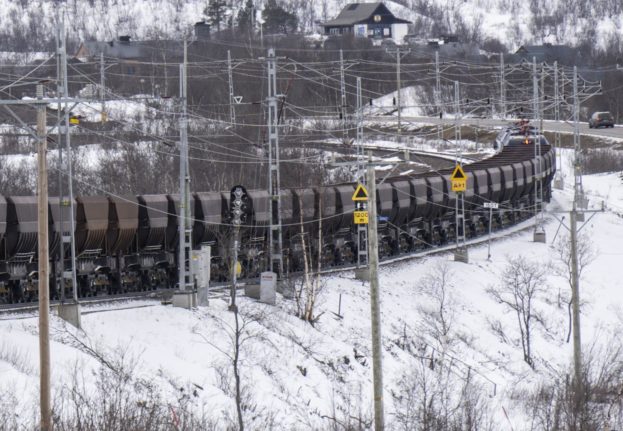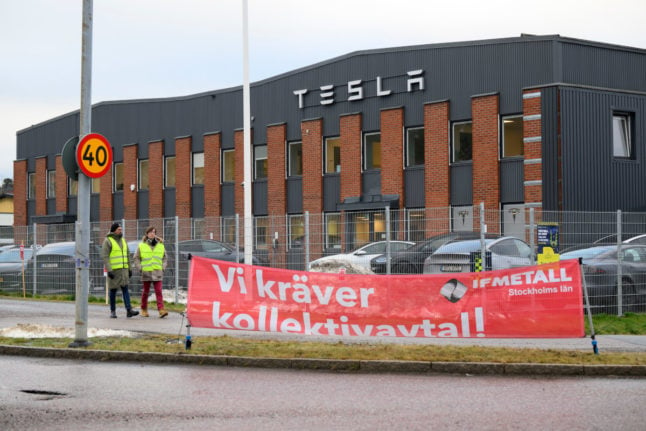The report comes just days after prosecutors arrested two German-Russian men on suspicion of spying for Russia and planning attacks in Germany to undermine military support for Ukraine. There have been similar alleged incidents in several other European countries.
FT also claims that security services in Sweden suspect that a series of recent railway derailments may be acts of state-backed sabotage.
It doesn’t mention any specific incidents, but late last year, a fully-loaded freight train derailed on the Malmbanan near Vassijaure in northern Sweden, damaging around 15 kilometres of the line.
Repairs began quickly, but state-owned Swedish mining company LKAB, which uses the line to transport iron ore was greatly affected, with losses of around 100 million kronor per day while the line was closed and a 3.8 million drop in operating profits for the last quarter of 2024.
It reopened on February 20th, but just five days later it derailed again in Vassijaure, this time along a shorter stretch.
Fredrik Hultgren-Friberg, press spokesperson at the Swedish Security Services (Säpo), reiterated to Swedish newspaper Svenska Dagbladet (SvD) what’s previously been said, that Säpo is collaborating with police on the Malmbanan investigation.
“Säpo has an ongoing, routine collaboration with the police force on a number of cases, primarily when it cannot be ruled out that a foreign power is involved. One of those collaborations is on the investigation around Malmbanan,” he said.
Hultgren-Friberg declined to comment on the FT’s reports that Russia is planning attacks on European infrastructure.
“What I can confirm is that Russia is the largest single threat to Sweden,” he told SvD. “We’ve said that for a while. What we can see is more aggressive, risky behaviour from Russia in their illegal actions and spying in Sweden.”
Swedish police and Säpo have previously confirmed that they are investigating the Malmbanan incidents as possible sabotage, which doesn’t automatically mean that they actively suspect sabotage, but is also a routine procedure to facilitate the probe.
Prime Minister Ulf Kristersson told Swedish news agency TT that the reports in FT did not come as a surprise to him.
“Russia is prepared to go further and carry out operations and sabotage on other countries’ territory,” he said.
But when asked whether such acts of sabotage had taken place in Sweden, he said that wasn’t the case.
“We haven’t seen any such signs for now, but we are on our toes. Other countries have seen things where they know or believe that there are such connections,” Kristersson said.
In late April, LKAB said it was so badly affected by the derailments that it may need to close temporarily as it’s not able to get stock to customers quickly enough, so its warehouses are nearing capacity.
“It’s a real worry,” LKAB’s CEO Jan Moström told TT. “If we can’t lower our stock then we’re going to have to start dialling down production capacity.”
Moström believes that this could affect up to 600 people – half being LKAB employees and the other half being independent contractors.



 Please whitelist us to continue reading.
Please whitelist us to continue reading.
Member comments